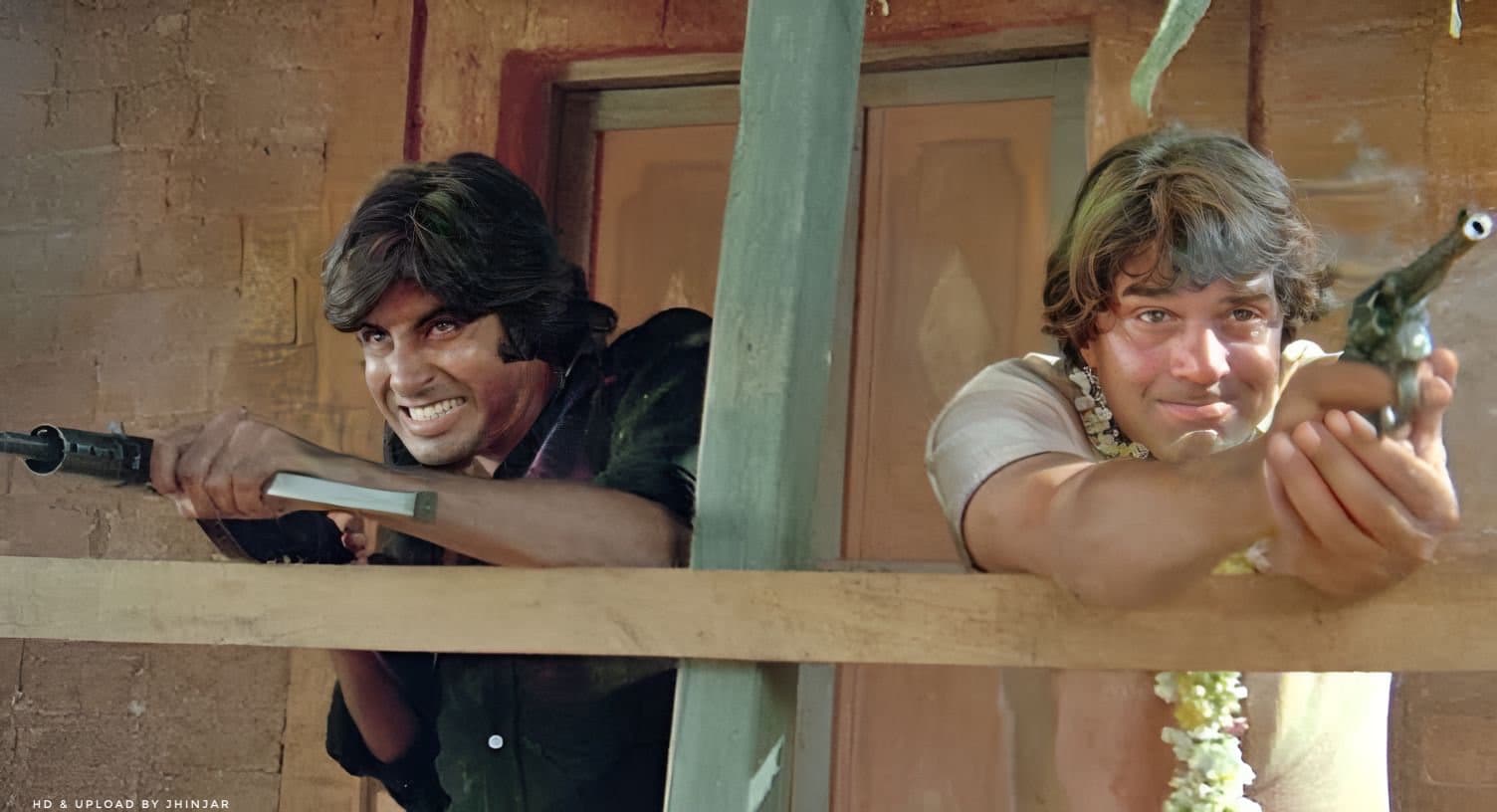These films not only stand the test of time but also become a part of cultural heritage. From melodramas to epics, here are 8 of the longest-running Indian films that have captivated audiences for years, turning the silver screen into a silver jubilee.
8 Longest Running Indian Films:
1. “Sholay” (1975):
This iconic film, directed by Ramesh Sippy, is often referred to as the epitome of Indian cinema.

With its timeless characters, epic action sequences, and unforgettable dialogues, “Sholay” ran for over five years in Mumbai’s Minerva Theater. Its legacy continues to thrive, with its characters and dialogues ingrained in popular culture.
2. “Dilwale Dulhania Le Jayenge” (1995):
Aditya Chopra’s directorial debut, “DDLJ,” became a cultural phenomenon.
This romantic saga featuring Shah Rukh Khan and Kajol has been running at Mumbai’s Maratha Mandir theater for over two decades, making it one of the longest-running films in Indian history.
3. “Mughal-E-Azam” (1960):
K. Asif’s magnum opus “Mughal-E-Azam” is known for its grandeur, opulent sets, and timeless love story.
The film’s re-release in color in 2004 extended its theatrical run, delighting a new generation of cinephiles and ensuring its place in history.
4. “Gadar: Ek Prem Katha” (2001):
Set against the backdrop of the Partition, “Gadar” struck a chord with audiences for its emotional storyline and patriotic fervor.
The film’s portrayal of love and sacrifice resonated deeply, contributing to its remarkable run in theaters.
5. “Raja Harishchandra” (1913):
The first Indian feature film, directed by Dadasaheb Phalke, laid the foundation for the Indian film industry.
Despite being a silent film, “Raja Harishchandra” ran successfully for a significant period, showcasing the power of storytelling even in its simplest form.
6. “Dil Bhi Tera Hum Bhi Tere” (1960):
This emotional drama, directed by Arjun Hingorani, ran for more than three years at Mumbai’s Roxy Cinema.
The film’s story of love, sacrifice, and family values resonated with audiences, contributing to its prolonged run.
7. “Bobby” (1973):
Directed by Raj Kapoor and featuring his son Rishi Kapoor and Dimple Kapadia in their debut roles, “Bobby” became a sensation.
Its youthful romance, foot-tapping music, and engaging storyline led to an extended run at the box office.
8. “Dil Se..” (1998):
Mani Ratnam’s “Dil Se..” starring Shah Rukh Khan and Manisha Koirala, despite not achieving immediate blockbuster status, continued to run in theaters for an extended period.
Its unique blend of romance and political intrigue has garnered a dedicated fan base over the years.
Conclusion-
The enduring appeal of these films highlights the magic of storytelling and the emotional connection that cinema can forge with its audience. From the epic saga of “Sholay” to the timeless romance of “DDLJ,” these films have not only entertained but also influenced generations, leaving an indelible mark on Indian cinema.
Their enduring success is a testament to the power of narratives that resonate with universal themes of love, sacrifice, and patriotism. These films remind us that while trends may come and go, true cinematic gems can captivate and engage audiences for years, creating a lasting legacy that transcends time.
As we celebrate the longevity of these films, we acknowledge the efforts of filmmakers, actors, and the entire creative team behind them. Their dedication to their craft has resulted in movies that continue to enchant and inspire, proving that the silver screen can indeed turn into a silver jubilee, leaving an everlasting impact on the world of cinema.
ALSO READ: 20 Famous Dialogues By Akshay Kumar